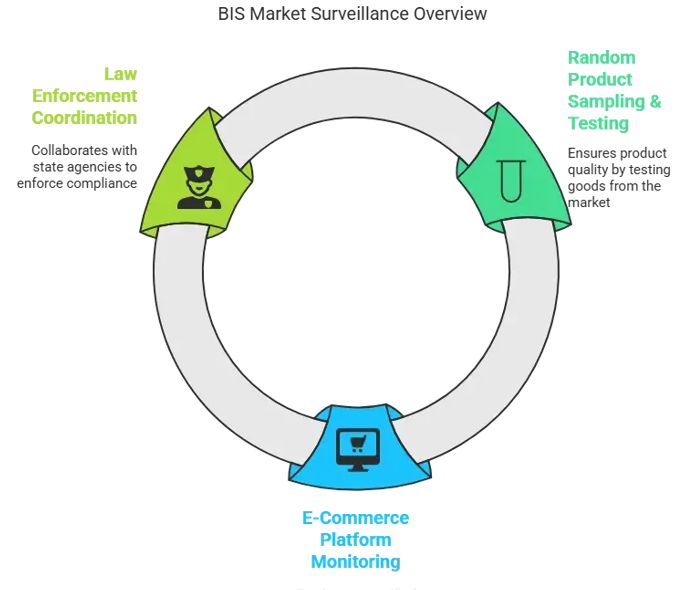- within Consumer Protection topic(s)
- with readers working within the Retail & Leisure industries
- within Real Estate and Construction, Employment and HR and Privacy topic(s)
- with Senior Company Executives, HR and Inhouse Counsel
Introduction
The Bureau of Indian Standards (BIS) has intensified its enforcement1against non-compliant products in e-commerce warehouses underSection 28 of the BIS Act, 2016. Recent search and seizure operations in Lucknow, Gurugram, and Delhi targeted goods that failed to meet BIS safety and quality standards. This move reinforces BIS's commitment to consumer protection and product standardization in India's booming e-commerce sector.
Following these raids, BIS initiated legal proceedings underthe BIS Act, 2016, imposing strict penalties on businesses violating standards. This article explains BIS enforcement actions, legal provisions, and compliance measures for e-commerce operators.
BACKGROUND
With e-commerce becoming a primary retail channel in India, ensuring quality control has become challenging. To combat substandard and unsafe products, BIS has ramped up market surveillance and legal enforcement.
Key Aspects of the BIS Raids:
- Search & Seizure Operations: Conducted at major e-commerce warehouses to remove non-compliant goods.
- Legal Action Initiated: Companies violating BIS norms face penalties under Section 17 of the BIS Act, 2016.
- Consumer Safety as a Priority: Ensures that only BIS-certified products reach consumers.
Relevant Provisions Under BIS Act, 20162
TheBIS Act, 2016 regulates thequality, standardization, and certification of products sold in India. The following provisions impose strict penalties for non-compliance.
|
Section |
Provision |
Penalty & Consequences |
|
Section 17 |
Prohibits the manufacture, sale, import, distribution, or storage of goods that do not meet prescribedBIS standards. |
Fine of at least ₹2 lakh, which may go up to ten times the value of the non-compliant goods. Severe violations may lead to up to two years of imprisonment. |
|
Section 29 |
Penalizes unauthorized use of the Standard Mark without BIS approval. |
Fine up to ₹5 lakh. Unauthorized use leads tolegal action and financial penalties. |
|
Sections 15 & 16 |
Mandates compulsory BIS certification for specified product categories, including electronics, food products, and industrial equipment. |
Non-compliance results inproduct seizureand legal action. Ensures that products meetsafety, quality, and performance requirements. |
|
Section 28 |
Grants BIS the authority to search warehouses, inspect goods, and seize non-compliant products. |
BIS can confiscate violating goods and initiate legal proceedings against sellers. Businesses must maintain strict compliance to avoid disruptions. |
BIS's Market Surveillance Initiatives
Beyond legal enforcement, BIS has intensifiedmarket surveillanceto protect consumers:

Conclusion
The BIS raid on e-commerce godowns underscores the agency's focus on regulatory compliance and product safety. As enforcement actions increase, businesses must ensure that their products meet BIS standards to avoid seizures, penalties, and legal consequences. Adhering to BIS norms is essential for operating lawfully in India's e-commerce sector.
Footnotes
1 https://pib.gov.in/PressReleasePage.aspx?PRID=2111506
2https://www.indiacode.nic.in/handle/123456789/2157?view_type=search
The content of this article is intended to provide a general guide to the subject matter. Specialist advice should be sought about your specific circumstances.


